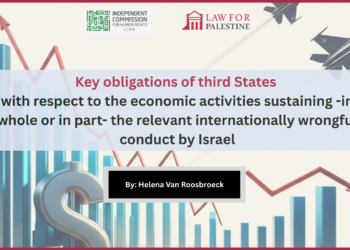Ayebawaduanyu Dominion Benjamin and Nse Bassey Etienam, both from the Department of History and Diplomatic Studies at the University of Port Harcourt, have published an article titled “The Politics of Non-Recognition in International Law: The Palestine Experience” in the latest issue of the Journal of International Relations Security and Economic Studies (Vol. 3 No. 3, 2024).
The article explores the intricate reasons behind the non-recognition of Palestine within the international community and examines the role of international law and politics in the recognition of new states. By employing secondary sources and qualitative data analysis, Benjamin and Etienam delve into the complexities of the global political landscape that impede Palestine’s quest for sovereignty.
Their research adopts the world system theory to analyze interdependence on a theoretical level, revealing that political dynamics within the United Nations Security Council are a significant barrier to Palestine’s recognition as a sovereign state. The study also highlights the importance of economic strength and the potential threats to international peace and security as critical factors influencing state recognition.
Key findings from the study include:
- The Security Council’s politics play a crucial role in obstructing Palestine’s sovereignty.
- Economic strength enhances an entity’s chances of gaining recognition.
- For states, threats to international peace can justify denying a group’s right to statehood.
In light of these findings, the authors advocate for the establishment of a legal framework with enforceable consequences for state recognition, free from political interference. Furthermore, they emphasize that Palestine’s non-observer status at the United Nations should be seen as a stepping stone rather than an end goal, urging continued efforts toward achieving full sovereign status.
For more information and to read the full article, please click here





